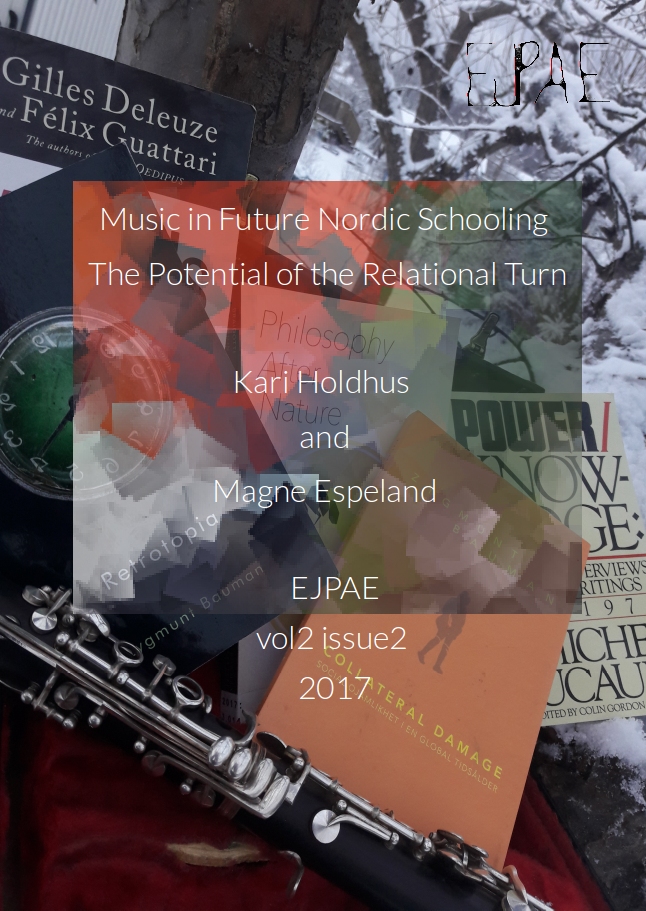Music in Future Nordic Schooling
The Potential of the Relational Turn
DOI:
https://doi.org/10.5281/zenodo.3383789Keywords:
relationality, music in schools, pedagogic renewal, social and emotional competencies, inclusivityAbstract
In this article, we discuss general school music in light of the fairly recent focus on relationality, specifically in pedagogy but also in related academic fields, such as psychology, aesthetics and philosophy. The main focus of the text is directed towards what we refer to as the relational turn in education, emphasizing school music in Nordic and Western countries.
The article is inspired by two recent Norwegian reports indirectly suggesting that the accountability and cognitive skill-oriented school policies within the Norwegian education community that have dominated for the past 20 years might be inadequate. The reports propose a new direction focusing more on creativity and inclusivity with an emphasis on deep learning and the social and emotional impact of education.
By investigating the relational turn in education as well as relationality in the fields of philosophy, psychology and aesthetics, we argue that many of these relational approaches may contribute to renewal of the rationale, as well as the construction and practice, of school music as a future curriculum subject.
In the last part of the article, we discuss how three internationally known disciplines of school music, namely music-making (singing and playing), composing and listening, could be renewed by pedagogies inspired by the relational turn.

Published
Issue
Section
License
EJPAE provides immediate open access to all its published content. Users do not need to register or pay to read content.
https://creativecommons.org/licenses/by/4.0/
Authors of content published in European Journal of Philosophy in Arts Education (EJPAE) retain the copyright to their works. Content is free to be used by anyone as long as you "[...] give appropriate credit, provide a link to the license, and indicate if changes were made. You may do so in any reasonable manner, but not in any way that suggests the licensor endorses you or your use." and "No additional restrictions — You may not apply legal terms or technological measures that legally restrict others from doing anything the license permits." (from the Creative Commons licence agreement)
EJPAE does not charge any author or publication fees.
Authors are encouraged to deposit the final published version of their article for self-archiving (author's personal website) and/or archiving in an institutional repository immediately upon publication.




